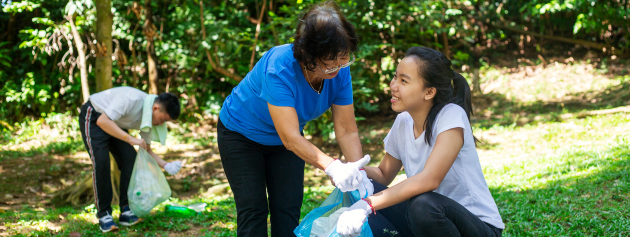In contemporary education, the integration of community service narratives has emerged as a pivotal element in fostering personal growth and social responsibility among students. These narratives serve not only as a reflection of individual experiences but also as a powerful tool for cultivating empathy, critical thinking, and civic engagement.
By actively participating in community service, students are provided with opportunities to engage with diverse populations, confront real-world challenges, and develop a deeper understanding of societal issues. The stories that arise from these experiences allow students to articulate their learning journeys, fostering a sense of accountability and connection to their communities.
Educators increasingly recognize that these narratives can enhance the learning environment, encouraging reflection and dialogue that extend beyond the classroom walls.
In this article, the significance of community service narratives will be explored, highlighting their role in shaping character, enhancing educational outcomes, and preparing students to become informed and active members of society.
Through a comprehensive examination of the impact of these narratives on personal development and community engagement, the discussion will underscore the transformative potential of service-learning initiatives in today’s educational landscape.
Community service narratives enhance students' empathy and understanding of diverse perspectives.
Through participation in community service, students encounter a variety of individuals and scenarios that challenge their preconceived notions and biases. Engaging in narratives that reflect the experiences of those they serve allows students to step outside their own realities and immerse themselves in the lives of others.
This process not only fosters a deeper emotional connection but also cultivates a more nuanced understanding of the complex social issues that affect different communities. By listening to and sharing these stories, students develop an appreciation for the struggles and triumphs of individuals from diverse backgrounds, ultimately broadening their worldview.
Moreover, community service narratives encourage reflective practices that enhance critical thinking skills. Students analyze their experiences and the impact of their actions, leading to a greater recognition of their role within the larger societal framework.
This introspection fosters a sense of responsibility and a desire to advocate for social change, as they come to understand the importance of empathy in addressing societal challenges. As they engage with diverse perspectives, students enhance their ability to communicate, collaborate, and connect with others, which are essential skills in an increasingly interconnected world.
As they grapple with the complexities of community needs, they are more likely to develop empathy and a sense of social justice.
Engaging in service fosters collaboration and teamwork skills among students in educational settings.
Collaboration emerges as a fundamental element in community service, as students work together to address shared goals and challenges. Through collective efforts, they learn to communicate effectively, delegate tasks, and support one another in various initiatives, which deepens their understanding of teamwork dynamics.
These experiences not only highlight the importance of individual contributions but also illustrate how diverse perspectives can lead to innovative solutions. As they navigate different roles and responsibilities, students develop essential skills such as conflict resolution, adaptability, and empathy, which are vital for both academic and professional success.
In educational settings, the integration of service learning promotes a culture of cooperation and mutual respect among students. As they engage in projects that require joint planning and execution, they cultivate a sense of accountability toward their peers and the communities they serve.
This collaborative environment encourages students to harness their strengths while recognizing the value of others’ skills, fostering a spirit of inclusivity. Consequently, the teamwork cultivated through service-oriented activities extends beyond the classroom, preparing students to navigate an increasingly interconnected world with greater confidence and awareness.

Check out this podcast!
Personal growth occurs through reflection on community service experiences, shaping future values and goals.
Reflecting on community service experiences enables individuals to gain deeper insights into their values and aspirations. Such reflections often reveal personal strengths and weaknesses, allowing students to identify areas for growth and development.
By contemplating their contributions and the impact of their efforts on others, they can cultivate a greater sense of purpose and responsibility. This process not only enhances self-awareness but also encourages the establishment of future goals aligned with their newfound values, fostering a commitment to lifelong learning and community involvement.
Moreover, the lessons learned through service experiences can significantly influence an individual’s worldview and ethical framework. Engaging with diverse populations exposes students to differing perspectives, challenges preconceived notions, and deepens their understanding of social issues.
As they grapple with the complexities of community needs, they are more likely to develop empathy and a sense of social justice. These evolving values often shape their career choices and personal lives, driving them to pursue paths that contribute positively to society and promote sustainable change.
Check out this episode!
Narrative experiences in service encourage critical thinking and problem-solving abilities in real-world contexts.
By narrating their service experiences, individuals are prompted to analyze situations, evaluate outcomes, and draw connections between their actions and the reactions of the community. This reflective practice not only enhances their ability to assess challenges from multiple angles but also empowers them to devise innovative solutions to complex problems.
Furthermore, the act of storytelling in service narratives fosters a deeper engagement with the material, allowing students to synthesize their experiences into broader themes of social responsibility and empathy. As they articulate their journeys, they engage in a process of meaning-making that sharpens their analytical capabilities.
This blend of reflection and narrative not only reinforces their understanding of the issues at hand but also equips them with the tools to navigate and address similar challenges in their future endeavors, both personally and professionally.
Community involvement promotes a sense of belonging and responsibility within the educational journey.
When students actively participate in their communities, they develop a profound connection to the people and environments around them. This involvement nurtures a sense of belonging, as they see firsthand the impact of their contributions on the lives of others.
Such engagement cultivates an understanding that education extends beyond the classroom, reinforcing the idea that they are integral members of a larger societal framework.
Moreover, with this sense of belonging comes an enhanced sense of responsibility. Students begin to recognize their role not only as learners but also as active agents of change within their communities.
This realization encourages them to take ownership of their educational journeys by integrating their academic pursuits with community needs.
The symbiotic relationship between personal growth and community service thus becomes evident, as students learn valuable life lessons that contribute to their overall development and foster a commitment to civic engagement that lasts beyond their school years.
In conclusion, the integration of community service narratives into educational frameworks plays a crucial role in fostering personal growth and social responsibility among students. By engaging with real-world challenges and reflecting on their experiences, learners develop a deeper understanding of empathy, teamwork, and civic engagement.
Such narratives not only enrich academic learning but also empower individuals to become active, informed members of their communities. As educators and institutions recognize the transformative power of these stories, they can better equip students with the skills and values necessary to navigate an increasingly interconnected world.
Ultimately, the importance of community service narratives extends far beyond the classroom, shaping compassionate leaders for the future.


